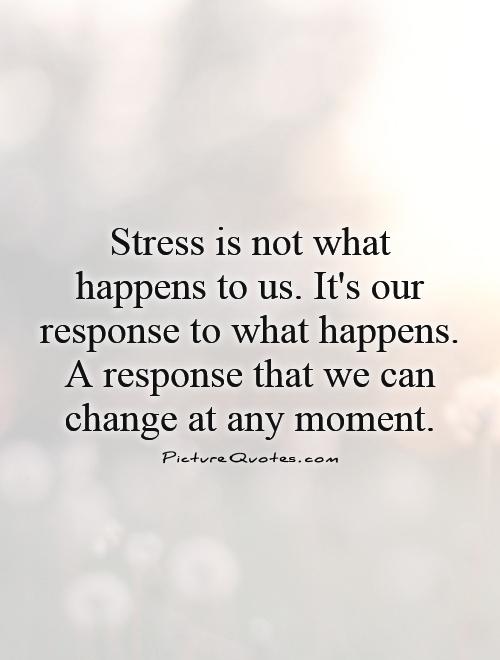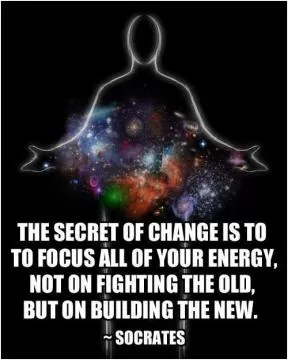Stress is not what happens to us. It's our response to what happens. A response that we can change at any moment

Stress is not what happens to us. It's our response to what happens. A response that we can change at any moment
Stress is a common experience that we all face at some point in our lives. It can be triggered by various factors such as work pressure, relationship issues, financial problems, or health concerns. However, it is important to understand that stress is not solely caused by external events or circumstances. In fact, stress is more about how we perceive and react to these events rather than the events themselves.The quote “Stress is not what happens to us. It's our response to what happens. A response that we can change at any moment” perfectly encapsulates this idea. It highlights the fact that stress is a subjective experience that is influenced by our thoughts, emotions, and behaviors. Our perception of a situation, our coping mechanisms, and our ability to manage our emotions all play a significant role in determining how stressed we feel.
For example, two people may face the same stressful situation, such as a tight deadline at work. One person may feel overwhelmed, anxious, and unable to cope, while the other person may feel motivated, focused, and energized by the challenge. The difference lies in their response to the situation – one person may have negative thought patterns, poor stress management skills, and maladaptive coping strategies, while the other person may have a more positive outlook, effective stress management techniques, and healthy coping mechanisms.
The good news is that our response to stress is not set in stone. We have the power to change how we perceive and react to stressful situations. By developing self-awareness, practicing mindfulness, and learning healthy coping strategies, we can effectively manage our stress levels and improve our overall well-being.
One effective way to change our response to stress is by using stress words. Stress words are powerful tools that can help us reframe our thoughts and emotions in a more positive and constructive way. By replacing negative, self-defeating words with positive, empowering words, we can shift our mindset and reduce our stress levels.
For example, instead of saying “I can’t handle this,” we can say “I am capable of handling this.” Instead of saying “I’m so stressed out,” we can say “I am feeling challenged, but I can manage this.” By using stress words that promote resilience, self-efficacy, and optimism, we can change our response to stress and build our emotional resilience.












 Friendship Quotes
Friendship Quotes Love Quotes
Love Quotes Life Quotes
Life Quotes Funny Quotes
Funny Quotes Motivational Quotes
Motivational Quotes Inspirational Quotes
Inspirational Quotes